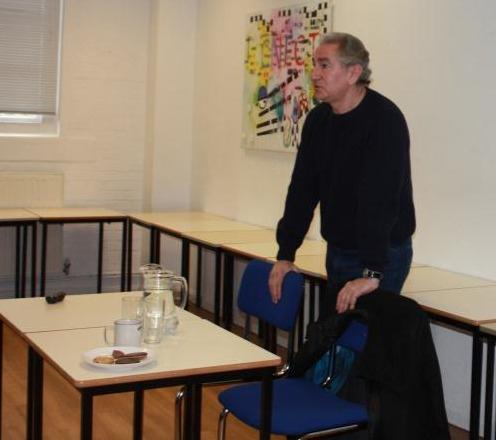
In a break from the norm of the class environment, Brampton College Economics students were addressed once again by Ian Morley. He spoke in depth about both political and economic issues we see facing the UK and the international community.
The European Union, the epicentre of all current political and economic debate. We will leave? Won’t we leave? What happens if we do? Can’t we just renegotiate the terms of our membership with Cameron’s EU buddy Angela Merkel, the most powerful person in the EU? Will the proposed Conservative referendum materialise after the next election in 2015? Mr Morley drew attention to the business world’s general consensus of maintaining our place within Europe, in order to sustain the ability to trade freely with fellow member states, and benefit from the influx of migrants through the freedom of movement. They help to resolve the challenges caused by the UK’s aging population, which is reducing our productive capacity at the same time as putting increasing financial and welfare pressures on the state, due to retirement. So while over 70% of the population are against immigration, heightened by the loosening of controls on Bulgaria and Romania, immigrant workers are perhaps actively holding the UK economy together and making it the fastest growing nation in the EU. At the same time however, is the EU hindering business through its desire to over-regulate industry, so strangling its competitiveness, whether in labour markets, financial markets or many other areas. This is one of many arguments that Mr Morley highlighted and shared with that of UKIP (Anti-EU Party), who have said the UK parliament is obsolete as over 70% of political and economic decisions are made in Brussels.
Mr Morley also alluded to the events taking place in Ukraine, which has been partially invaded by Russia under the orders of Vladimir Putin to ‘protect Russians’. This conflict has grown again from the EU, as Ukraine decided it wanted to join the club and integrate into the western world rather than be a ‘brother nation’ to Russia. This has caused much tension among many world leaders who have been condemning Russia for their actions. These could directly impact on the UK, whose biggest gas supplier is Russia, via pipelines that travel through Ukraine. Mr Morley said this may be a good thing, the push we need to move to a more sustainable energy source rather than relying on the finite resource that is oil. Alternatively, it might just make the UK take advantage of its vast untapped gas supplies through the means of the fiercely debated method of fracking which few people fully understand. The USA has followed this route and now is self-sufficient in terms of energy. This could be one of the main contributors of the current economic growth they’re experiencing.
Mr Morley then went on to provoke debate about Scottish independence, and what students thought would happen as well as what they’d like to happen. One student declared purely from an economics perspective that as the Scottish receive more from the government than they generate in tax, it would be beneficial to England, thus unfavourable to Scotland. The UK however, would lose the unity that makes us British- the glue between the English and the Scottish: in other words the English wanting a claim to Andy Murray and Sir Chris Hoy. This is the desire of all the three main political leaders. If Scotland left there are also many unanswered questions: potential membership of the EU? How much of the UK national debt they will inherit and many more.
This lecture rose to the students’ attention, what was going on in the world at the moment, and how learning was ‘real stuff’, with great relevance to current affairs. It lets us understand and become involved in these issues by discussing them and voicing our opinion which is key to applying the knowledge we’ve been given. So maybe our teachers are doing something after all! I will let you decide.



